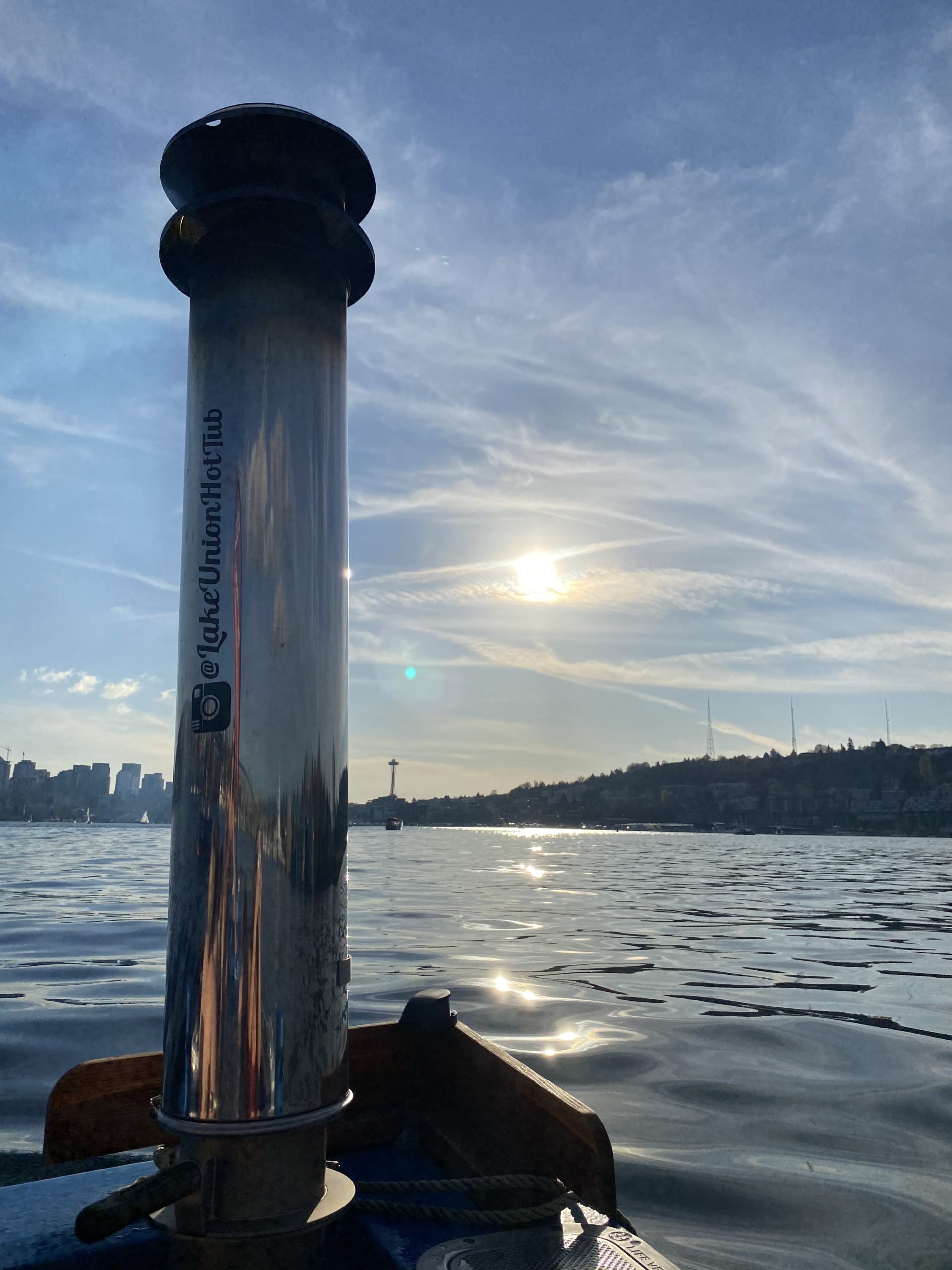Taylor loves living in Washington, DC and enjoys her job in global public health. She likes to travel, spend time with her family and friends and has a stellar roommate/friend. The only trouble? She’s tired of renting and would like to buy a condo to start building equity and planning for her future. Can she afford a condo in our nation’s capital? Or would she be wise to consider a cheaper–but potentially less valuable–co-op condo?
What’s a Reader Case Study?
Case Studies address financial and life dilemmas that readers of Frugalwoods send in requesting advice. Then, we (that’d be me and YOU, dear reader) read through their situation and provide advice, encouragement, insight and feedback in the comments section.
For an example, check out the last case study. Case Studies are updated by participants (at the end of the post) several months after the Case is featured. Visit this page for links to all updated Case Studies.
The Goal Of Reader Case Studies
Reader Case Studies intend to highlight a diverse range of financial situations, ages, ethnicities, locations, goals, careers, incomes, family compositions and more!
The Case Study series began in 2016 and, to date, there’ve been 79 Case Studies. I’ve featured folks with annual incomes ranging from $17k to $200k+ and net worths ranging from -$300k to $2.9M+.
I’ve featured single, married, partnered, divorced, child-filled and child-free households. I’ve featured gay, straight, queer, bisexual and polyamorous people. I’ve featured women, non-binary folks and men. I’ve featured transgender and cisgender people. I’ve had cat people and dog people. I’ve featured folks from the US, Australia, Canada, England, South Africa, Spain, Finland, Germany and France. I’ve featured people with PhDs and people with high school diplomas. I’ve featured people in their early 20’s and people in their late 60’s. I’ve featured folks who live on farms and folks who live in New York City.
The goal is diversity and only YOU can help me achieve that by emailing me your story! If you haven’t seen your circumstances reflected in a Case Study, I encourage you to apply to be a Case Study participant by emailing your brief story to me at mrs@frugalwoods.com.
Reader Case Study Guidelines
I probably don’t need to say the following because you folks are the kindest, most polite commenters on the internet, but please note that Frugalwoods is a judgement-free zone where we endeavor to help one another, not condemn.
There’s no room for rudeness here. The goal is to create a supportive environment where we all acknowledge we’re human, we’re flawed, but we choose to be here together, workshopping our money and our lives with positive, proactive suggestions and ideas.
A disclaimer that I am not a trained financial professional and I encourage people not to make serious financial decisions based solely on what one person on the internet advises.
I encourage everyone to do their own research to determine the best course of action for their finances. I am not a financial advisor and I am not your financial advisor.
With that I’ll let Taylor, today’s Case Study subject, take it from here!
Taylor’s Story
Hi Frugalwoods, I’m Taylor! I’m single, 34, and living with a long-term roommate/friend on Capitol Hill in Washington, DC. I grew up on the West Coast but moved to the East Coast for college and then DC for grad school.
In 2017 I moved back to the West Coast to be closer to family, especially aging grandparents and my two younger sisters who are my best friends. However, a series of difficult changes in my family, including the passing of my grandmothers, along with my lack of community/friends in my hometown helped me make the decision to move back to DC. I did that in May 2021 and I’m so happy. DC is where I spent all my 20s, really became the person I am today, and I have such a strong community of incredible girl friends here. I miss my family but talk to them frequently and visit several times a year.
Taylor’s Career
I work in the global health nonprofit sector and really enjoy my job. In the pre-pandemic days, I traveled internationally quite often to some off-the-beaten path places like Tbilisi, Georgia and Karachi, Pakistan. I was always able to add days on to my work trips for sightseeing, which was a real perk. I take points/miles earning for travel very seriously (this will become clear when you look at my credit cards) and have rarely paid cash for personal travel…though my points are running low after two years of no work travel. It’s been really odd being a public health professional during the pandemic. It’s so nice to have people understand what I do and its importance (and there is a lot more public funding for my work available too!) but it’s also been difficult to deal with all the misinformation, even among my own family members.
Taylor’s Upbringing
In terms of finances, my mother always said we lived a champagne life on a beer budget. My parents both worked blue collar jobs and didn’t have a lot of money for most of my life, which I was very aware of.
Additionally, my dad has chronic health issues that sometimes disallowed work for long periods of time, which was really stressful, financially and otherwise. However, both sets of grandparents were very well off and together they paid for all the “extras” in my sisters’ and my lives: private school (K-12), ballet lessons, piano lessons, yearly vacations.
They even paid for private tuition in college for me and gave me an interest-free loan for graduate school. This dichotomy really influences the way I approach my finances. I feel like I am good with my money and save a good amount, but I am certainly not frugal and I enjoy nice things.
When I’m not working, I enjoy reading, cooking/baking (I’ve made several wedding cakes for friends) and doing yoga. My weekends are usually (COVID permitting) fully booked with seeing friends and I’m dating a lot as well.
What feels most pressing right now? What brings you to submit a Case Study?
I wanted to submit a Case Study because I’m considering home ownership. I recently learned that DC has a number of cooperative housing communities (“co-ops”) and because of the variable rules imposed by the co-op boards (examples: no pets, no subletting, new buyers require board approval, renovations subject to board approval) they are significantly less expensive than regular condos.
Sadly, single family homes within the city are entirely outside the realm of possibility for me as a single lady. I’ve done some “window shopping” on RedFin/Zillow and talked to some lenders and learned that I could easily afford a 1-bedroom co-op (~$350K). But because of the rules specific to co-ops, they’re not quite the investment you would expect to get when buying real estate in a large urban center. Basically, it’s unlikely that something like this would allow me to build enough equity to level up into a house down the line. The other options are to stretch the budget to include condos and their associated equity building potential (~$500K), or continue renting a shared 2-bedroom plus den. Currently it is less expensive for me to rent, but this month my rent increased to almost $2,000/month and I could pay a mortgage and HOA (home owner’s association) fees for the same amount.
I’m also trying to balance the desire for home ownership and the accompanying stability with a strong desire for marriage and children. I am concerned about being heavily invested in something that might be difficult to offload if I need to move somewhere larger. But I’ve been dating for 10+ years without long-term success and I don’t want to put off something that would enhance my life because I’m not partnered (and don’t know when/if I will be).
What’s the best part of your current lifestyle/routine?
I absolutely love living in the city! I walk everywhere, my favorite route is around the Capitol building and down the National Mall. I also love how close all my friends are and I see several each week, including my goddaughter and her family. I also love living with my roommate. We met through a Craigslist roommate situation in 2013 and have been together ever since. We joke about growing old together. I also enjoy my job, the work is fulfilling and challenging, my schedule is flexible, the benefits are amazing and the ability to travel is a huge perk.
What’s the worst part of your current lifestyle/routine?
The global nature of my job makes having a routine difficult. Before the pandemic, traveling on a monthly basis and now having endless Zoom meetings from 7-9AM or 7-9PM to meet with colleagues on the other side of the world. And while my work is fulfilling I spend a lot of time on business development, which is my least favorite task.
Where Taylor Wants to be in Ten Years:
Finances:
- On track to have the option to be partially retired by 55.
- In my field, there are a lot of short-term consulting opportunities, which really appeals to me. The ability to take on certain projects and then have extended periods of free time would be ideal.
Lifestyle:
- I would love to be in DC (or the metro area) still and hopefully a homeowner, married with 1-2 kids.
- I plan to remain close with my friends and family, making an effort to see them regularly.
- And I hope to continue to regularly travel internationally for pleasure.
Career:
- I’d like to stay in my field and ideally work for the government because I wouldn’t have to do business development anymore and it would be really stable (except during government shutdowns ha!).
- I also think a lot about doing a PhD because I’d like to be more of a technical expert (see Finance goal). But I’ve watched a lot of friends struggle through PhD programs, so it is not super appealing. Plus I really enjoy making a normal salary.
Taylor’s Finances
Income
| Item | Amount | Notes |
| Taylor’s Net Income | $6,249 | Minus 401k contribution (maxed out at ~$789/paycheck) and taxes; I do not pay any premiums on health/dental/other insurance. I am paid every two weeks, a couple months of the year have 3 pay periods, most have 2. This is my annual net salary divided by 12 months. |
| Monthly subtotal: | $6,249 | |
| Annual total: | $74,989.20 |
Debts: $0
Assets
| Item | Amount | Notes | Interest/type of securities held/Stock ticker | Name of bank/brokerage | Expense Ratio (applies to investment accounts) |
| 401k | $78,621 | 10% contribution from my employer, no match required. | FXAIX | Empower Retirement | 0.015% |
| Rollover IRA | $72,132 | From prior employers | SNXFX (56%), SCHH (3.5%), SCHF (9%), SCHO (1%), SCHB (24%), SCHA (6%) | Charles Schwab | SNXFX (0.05%), SCHH (0.07%), SCHF (0.06%), SCHO (0.04%), SCHB (0.03%), SCHA (0.04%) |
| Roth IRA | $50,404 | Typically max this out, haven’t done so this year while trying to increase my cash in case of home purchase. | SWISX (14%), SWSSX (13%), SWTSX (67%), SWRSX (6%) | Charles Schwab | SWISX (0.06%), SWSSX (0.04%), SWTSX (0.03%), SWRSX (0.05%) |
| Savings account | $27,000 | Emergency Fund | Cash | Ally Bank | N/A |
| Savings account | $23,000 | Big Purchase Fund | Cash | Ally Bank | N/A |
| SEP IRA | $5,045 | Did some work on the side for my boss in 2019-2020 and put 25% of my earnings here. | SWPPX | Charles Schwab | 0.02% |
| Checking account | $2,784 | I do not keep much here, I like to have about $3K here at all times and will transfer to/from Ally as needed. | Cash | Charles Schwab | 0.03% |
| Individual stocks | $2,730 | Bought Netflix for fun | NFLX (17%), FDIS (11%), FTEC (8%), SWPPX (64%) | Charles Schwab | FDIS (0.084%), FTEC (0.084%), SWPPX (0.02%) |
| Total: | $261,715 |
Vehicles: none
Expenses
| Item | Amount | Notes |
| Rent | $1,918 | 2 Bed + Den / 2 Bath; split with roommate, this is my half. |
| Travel | $388 | Flights, Hotels, and Meals while on personal travel. Includes credits noted in CC section. |
| Groceries | $367 | Includes household items (toilet paper, cleaning products, laundry detergent, etc.) and some beer and wine. |
| Home Furnishings/Improvement | $322 | Furniture and Décor |
| Clothing & Shoes | $320 | Includes a monthly Rent the Runway subscription ($140). |
| Restaurants | $285 | |
| Other Shopping | $264 | Includes $2,600 I spent getting jewelry I inherited from my grandma reset. |
| Rideshare/Taxi | $246 | I don’t have a car so it’s this plus public transit. |
| Alcohol & Bars | $211 | Includes an every other month wine (6 bottle) subscription |
| Gifts | $127 | I’m in the wedding/baby season of my life and contribute to my goddaughter’s college fund. |
| Personal Care | $110 | Includes massages, pedicures, skin/beauty products |
| Medical Expenses | $84 | I have a couple chronic conditions that require maintenance. |
| Credit Card Annual Member Fees | $82 | See breakdown below. It’s been difficult to justify having all of these during the pandemic, but I’ve been loathe to cancel them with all the uncertainty about returning to travel when they’ve given me so much value in the past. |
| Charity | $78 | Monthly donations to two organizations doing work I’m passionate about. |
| Utilities | $77 | Water, Electric, Trash |
| Term Life and Disability Insurance | $72 | My company offers me disability but I took out personal policies years ago because my dad has had health issues that have caused long periods where he couldn’t work and it was difficult on our family finances. I took out term life when I still had student loans to pay, but figure at this point I’ll keep it. |
| Arts and Entertainment | $52 | I attend the symphony, ballet, and some comedy shows. |
| Cell Phone | $42 | Still on the Family Plan |
| Pharmacy | $37 | Includes various personal care items like deodorant, face wash, or vitamins. |
| News(letter) Subscriptions | $36 | NYTimes and 2 newsletters from favorite creators |
| Coffee Shops | $32 | Usually travel related |
| Hair | $31 | I get cut 2x per year and highlights 1x |
| Movies and TV | $30 | Includes Netflix and Apple TV, my roommate pays for Hulu and HBO Max, we don’t have cable. |
| Fast Food | $25 | Includes infrequent delivery |
| Books | $24 | Purchased from local bookseller |
| Dentist | $21 | I had some preventative work done recently, otherwise this category is usually $0 |
| Internet | $20 | Shared with my roommate, Comcast is our only option in the building |
| Gym | $20 | Recently returned to in-studio yoga classes, I expect this to increase if we continue to have low COVID case counts. |
| Eye care | $12 | Includes contacts |
| Monthly subtotal: | $5,333 | |
| Annual total: | $63,996 |
Credit Card Strategy
| Card Name | Rewards Type? | Bank/card company | Annual Fee | Relevant Benefits |
| Chase Sapphire Reserve® | Travel | Chase Bank | $550.00 | 3x points on travel and dining, 10x on Lyft, no foreign transaction fees, $300 travel credit, primary rental car insurance waiver, trip insurance, lost/delayed luggage insurance. |
| Chase Freedom Flex | Cash Back/Travel | Chase Bank | $0.00 | 5x on rotating categories, points can be transferred to Sapphire Reserve and are worth more |
| Barclay Arrival Plus Card | Travel | Barclays Bank | $89.00 | 2x points on everything; Not many, got for sign-up bonus and should probably cancel before next year’s fee is levied. |
| United Mileage Plus Explorer | Travel | Chase Bank | $95.00 | 2x points on United, Free checked bags (2), priority boarding, 2 lounge passes |
| Capital One Venture | Travel | Capital One | $95.00 | 2x points on everything; Not many, got for sign-up bonus and short-lived Hotels.com promotion (10x pts!) and should probably cancel before next year’s fee is levied. |
| American Express Green Card | Travel | American Express | $150.00 | 3x pts on travel and dining, no transaction fees, $100 Clear credit (I get discounted price due to airline status, so only out $9) |
| Blue Cash Everyday® from American Express | Cash Back | American Express | $0.00 | |
| Total annual fees: | $979.00 |
Taylor’s Questions For You:
1) Should I seriously consider buying a co-op even though it might not be an investment and would potentially be difficult to sell?
2) Should I take into account my hoped-for-family when considering buying a place? For example, stretch the budget to get a 2-bedroom so that there’s more flexibility?
3) If I continue to save as I have, am I on track to partially retire (Coast FIRE?) by age 50 or 55?
4) Are there any points/miles aficionados out there that can advise on whether I should cancel any of my credit cards (I’m already thinking the Barclay Arrival+ and/or CapitalOne)?
Liz Frugalwoods’ Recommendations
Taylor’s doing a fantastic job! Most of what we’ll discuss today are small tweaks to her already A+ financial management system. I love a good check-in, even when there’s nothing disastrously wrong. Never hurts to ensure you’re on the right track! The thing about money is that small decisions can have pretty major ramifications over the years, so it’s always wise to test your assumptions and double check the decisions you’ve made. Thank you for giving us the opportunity to do that today, Taylor!
Taylor’s Question #1: Should I seriously consider buying a co-op even though it might not be an investment and would potentially be difficult to sell?
I think that whatever decision Taylor makes, now is not the time to buy a house. The issue is that interest rates have increased (and are likely to continue to do so), but housing prices haven’t yet moderated. So, we’re in a situation where housing prices are high and interest rates are high. Ideally, Taylor waits until one (or both) of those things cool off. If we head into a recession, that could be exactly what happens, which might give Taylor the perfect opportunity to pounce on a property. All that to say, if it were me, I wouldn’t buy a house right now. But all is not lost! Taylor now has a lovely opportunity to do housing research!
She can:
- Go to open houses
- Start tracking what homes actually sell for (this information is available online after a home closes)
- Discern the neighborhoods she prefers
- Get a real sense of what’s available on the market in her price range so that when the time comes to buy, she’ll be confident in her choice
- Continue saving up for her down payment
Co-op vs. Condo
Condos and co-ops both have a lot of restrictions, but it really depends on the specific association (in the case of a condo) or board (in the case of a co-op) because it varies a lot. In both instances, you’re dealing with a governing body, HOA fees, rules and restrictions. But it’s ultimately a question of whether or not those rules/restrictions matter to you personally.
For example: when my husband and I were house-hunting in the city, condos and co-ops were off the table for the simple reason that most don’t allow owners to rent out their unit. Since we knew we eventually wanted to turn our city home into a rental property, that wasn’t going to work for us. But if you don’t ever want to rent your place out, that wouldn’t be a deal-breaker for you. I think the specific co-op or condo association will be much more important to research than the blanket distinction of co-op versus condo. Particularly in a perennially hot market like DC!
Things to research about a co-op or condo association you’re considering joining:
-
What’s the monthly HOA (home owners association) fee and what does this cover?
- What are the association’s reserves?
- This is probably the MOST important thing to understand since an under-resourced association is likely to increase HOA rates or levy a special assessment at some point, which there’s nothing “special” about, it’s when you have to pay the association a lump sum for something like a new roof for the building. Conversely, if the association has a healthy reserve, they may not need to do a special assessment for the roof.
- This is something to take special note of because, while an association with low HOA fees may seem attractive, it could be that the association hasn’t been building up their reserves properly and will be forced to levy a special assessment to the tune of, say, $50k per resident to fix the leaking roof.
- Relatedly, are there major capital projects on the horizon likely to necessitate a special assessment?
- What’s the governance structure of the board? Who is on the board and how long have they been serving?
- What are the specific rules and restrictions of the association?
- How many units are part of the association?
- How many units are owner occupied vs. rented? (Sometimes associations will allow short-term or sporadic rentals, but not long-term rentals, which could make for interesting neighbors).
- What common areas/amenities are you allowed to access and how are they maintained?
- While things like a pool are awesome, they also require more $$$ to maintain.
- When it comes time to be interviewed by the board, make sure that you’re interviewing them too! Come prepared with your questions and don’t be afraid to ask.
There are certainly differences between condos and co-ops and I really like this article from BankRate, which gives the full rundown:
Price Differences:
A co-op is often cheaper than buying a condo… However, the down payment for a co-op can be high. While condo owners can take advantage of lower-down payment mortgages, such as a 3 percent conventional loan, most co-ops require a down payment of 10 percent to 20 percent… Closing costs for a co-op are likely to be lower than the final expenses on a condo, as you won’t need to pay for some fees, like title insurance.
…mortgage lenders are more likely to issue loans for a condo than a co-op. That’s because if a borrower defaults on a condo loan, the lender has real property to deal with rather than shares, which can be harder to sell.
Fees:
Co-op fees tend to be higher than condo fees because co-ops roll all the monthly expenses into one bill, including gas, water and property tax.
Governance:
…Co-ops are notoriously more stringent in who’s allowed to buy, often requiring background checks, referrals and other personal information. If you’re weighing the pros and cons of a co-op, that governance arrangement can be a significant drawback if you want to sell your membership share. The co-op board can turn down your buyer for any number of reasons.
I would again say that now’s a great time to do extensive research into the specific condo associations and co-ops Taylor might be interested in joining.
Taylor’s Question #2: Should I take into account my hoped-for-family when considering buying? For example, stretch the budget to get a 2-bedroom so that there’s more flexibility?
This is a tough one. In general, I’m a proponent of planning ahead, but in some cases, it doesn’t make sense to limit yourself in the present for a future that may or may not happen. I’m going to turn this question back to Taylor:
- Do you want to have children no matter what? Are you interested in becoming a SMC (single mom by choice)?
If the answer is yes, it probably does make sense to plan for children when buying a home. But if having children isn’t a priority, or you’re not interested in pursuing children without a partner, it probably makes a lot less sense. You can’t control other people–you can’t control whether or not you’ll find a partner–but you can control the choices you want to make. And if having children is a choice you’re going to make no matter what, then you can (and should) plan for their eventual presence in your life.
The other consideration is that you can’t know where your future partner will live or will want to live. I think it’s tough to buy a home for someone you haven’t met yet because there are a million reasons why that home might not work out in the context of your partnership. Kids, on the other hand, are happy to live wherever their parent is. Does that make sense?
It’s also important to remember that Washington, DC is a scorching hot real estate market and I really can’t imagine Taylor would have that much trouble selling her place in the future–even a co-op with restrictions on potential buyers. It’s ok to choose one thing now (a one-bedroom co-op, for example) and choose another thing for the next chapter of your life. Most people don’t stay in the same home for their entire lives and that is ok.
Taylor’s Question #3: If I continue to save as I have, am I on track to partially retire (Coast FIRE?) by age 50 or 55?
This depends on Taylor’s income and living expenses at that time. At present, she’s living a sustainable lifestyle as long as she doesn’t plan to retire early. If she decides she wants to retire early, she’ll need to do the two-step: 1) increase income; 2) dramatically reduce spending. However, if she wants to continue working to a traditional retirement age, she can just keep on keeping on.
The technical definition of Coast FIRE, according to Business Insider:
Reaching Coast FIRE [financial independence retire early] means you no longer have to save money to reach retirement. The difference between Coast FIRE and regular FIRE is that with regular FIRE, you no longer need income to retire. With Coast FIRE, you still need income to cover expenses, you just don’t need to worry about saving money for retirement.
With Coast FIRE, you continue working your job in order to cover your expenses, but you don’t need to earn enough to also invest for retirement. You let your investments “coast” until you retire. In light of that, it is likely Taylor would be able to reduce her hours and let her investments coast–as long as she still earns enough to cover her annual expenses.
Asset Allocation
Let’s dive into Taylor’s assets to see how she’s situated at present!
1) Retirement: $206,202
Taylor has $206,202 between all of her retirement accounts, which doesn’t include Social Security. Let’s refer to Fidelity’s retirement guideline:
Aim to save at least 1x your salary by 30, 3x by 40, 6x by 50, 8x by 60, and 10x by 67.
Since Taylor’s 34, she should have somewhere between 1x and 3x her salary, which is $74,989 to $224,967. Given that, she’s in perfect shape! As long as she continues investing as she is, she’ll be on track for a great retirement. When she nears her desired Coast FIRE age, she can do these calculations again and also take into account her expected Social Security payments to determine if she can stop saving for retirement and reduce her hours at that point.
2) Cash: $52,784
Since Taylor’s expenses total $5,333 per month, she should have an emergency fund (cash held in a checking or savings account) totaling $15,999 (three months worth of expenses) to $31,998 (six months worth of expenses). In light of that, she’s actually a bit overbalanced on cash. However, since she’s planning on buying a home, I think it makes sense to have a cash cushion–she’ll need this and more for a downpayment, closing costs and moving expenses.
That being said, if Taylor decides against buying and wants to remain a renter (which there’s nothing wrong with), she’ll want to consider a more profitable deployment of her extra cash–such as investing in the stock market. Cash sitting in a savings/checking account isn’t a good long-term strategy since the interest rates on those accounts are typically super low and don’t even keep up with inflation. However, you should still make sure your cash accounts are earning something in interest–never settle for no interest!
For example, if Taylor moved her $52,784 into American Express’ High Yield Savings account, which earns 0.75% interest as of this writing, in one year her $52,784 would grow to $53,180 (affiliate link). She’d earn $396 per year just for having her money in this high interest account. So again, not a viable long-term investment strategy (since the average annual stock market return OVER TIME is 7% annually), but it’s WAY better than nothing! By the way, the interest rates on savings accounts are like the ONE good thing about the Feds raising interest rates.
3) Non-retirement Investments: $2,730
While this isn’t a ton of money, I do question Taylor’s deployment of “buying Netflix for fun.” She is 100% correct that picking individual stocks should be seen as “fun” and not as a viable investment strategy. But, given how thoughtful she is with the rest of her money, why do this?
You do you; but, if it were me, I would move all of this into a low-fee total market index fund. But you know, I’m the “index and chill” gal. Plus, it seems that with the incredible competition in the streaming market right now, Netflix may not be the best investment. I like that Taylor selected a brokerage–Charles Schwab–known for low fees (see last month’s Case Study for a deep dive into the crucial, crucial, crucial importance of understanding investment fees and expense ratios).
While the fees Taylor listed are pretty low, they’re not the lowest. Here are the three brokerages and funds with the lowest fees (that I know of):
- Fidelity’s Total Market Index Fund (FSKAX) has an expense ratio of 0.015%
- Charles Schwab’s Total Market Index Fund (SWTSX) has an expense ratio of 0.03%
- Vanguard’s Total Market Index Fund (VTSAX) has an expense ratio of 0.04%
5) Monthly Expenses: $5,333
There’s no imperative, at present, for Taylor to reduce her spending. If/when she gets serious about buying a place, she may need to eliminate the extra/discretionary expenses for awhile in order to build up a greater cash reserve for her down payment, closing and moving costs.
But, she’s perfectly comfortable at this spending level. The fantastic thing about tracking your spending is that you know exactly where your money’s going and you know exactly which levers you can dial back when/if you need to save more. I love the free service from Personal Capital, which automates my expense tracking for me.
The two expenses I question:
- Term Life Insurance: with no dependents and no debts, there’s no reason for Taylor to have this.
- Cell phone bill: you know what I’m going to say here… Taylor can spend a good deal less by transferring to an MVNO. I always suggest this switch because it is THE easiest way to get the same thing for less money.
Here are a few MVNOs to consider (affiliate links):
For more, I have a full chart of providers and their prices here: How to Save Money on Your Cell Phone Bill with an MVNO: I Pay $12 a Month
Taylor’s Question #4: Are there any points/miles aficionados out there that can advise on whether I should cancel any of my credit cards (I’m already thinking the Barclay Arrival+ and/or CapitalOne)?
The way I’d look at this is as follows:
Are you getting more than $979 (what you’re paying in annual fees) in benefits from the cards?
If yes, then the cards–and their annual fees–are worth it. If not, they’re not worth it.
I suggest doing a thorough accounting of how she’s using these points and the relative value of each card. And I would compare this to the value she’d derive from a cash-back credit card because cash is something you will always use, whereas travel rewards are sometimes used, sometimes not. Furthermore, there are lots of cash-back cards with no annual fee, such as the two she already has:
1) Blue Cash Everyday® from American Express offers:
- 3% cash back at U.S. supermarkets (on up to $6,000 per year in purchases, then 1%).
- 2% cash back at U.S. gas stations.
- 1% cash back on other purchases.
- Earn a $200 statement credit after you spend $2,000 in purchases on your new card within the first 6 months.
- No annual fee. Rates and fees details here.
- Terms apply.
- 5% cash back on up to $1,500 in combined purchases in bonus categories each quarter you activate.
- New 5% categories each quarter.
- 5% cash back on travel purchased through Chase Ultimate Rewards
- 3% cash back on drugstore purchases and dining at restaurants, including takeout and eligible delivery service
- Unlimited 1% cash back on all other purchases.
- $200 bonus after you spend $500 on purchases in your first 3 months from account opening.
- No annual fee.
It’s important to remember that your annual spending is finite and thus, so are the points you can accrue. I choose to use primarily one cash-back card since it doesn’t have an annual fee and I know I’ll use the cash back I earn. But there’s also nothing wrong with responsibly managing a stable of credit cards (as long as you pay them off every month). It’s just important to ensure you’re actually deriving enough value to make the annual fees worthwhile.
The credit card links are affiliate links.
Summary:
- Accept that now’s not the time to buy a house given the current white hot housing market and rising interest rates.
- Now’s the time to research specific co-ops and condo associations, gather information on prices, neighborhoods and HOAs.
- Determine if her future definitely includes children, or if children are contingent upon having a partner as that’ll inform the size of condo to pursue.
- Continue investing for retirement and saving up excess cash for an eventual down payment.
- If she decides against buying a house in the near future, she should consider a more profitable deployment of her excess cash (above the amount of her emergency fund).
- Consider canceling her term life insurance and switching to an MVNO cell phone service provider to save money.
- Re-evaluate the stock picking account and instead consider a more broad based, total market low fee index fund.
- Do a thorough analysis of credit card point utility and determine if she’s deriving a greater than $979 value from the cards.
Ok Frugalwoods nation, what advice do you have for Taylor? We’ll both reply to comments, so please feel free to ask questions!
Would you like your own case study to appear here on Frugalwoods? Email me (mrs@frugalwoods.com) your brief story and we’ll talk.
Never Miss A Story
Sign up to get new Frugalwoods stories in your email inbox.


















